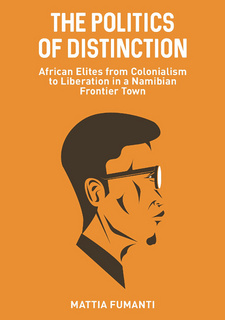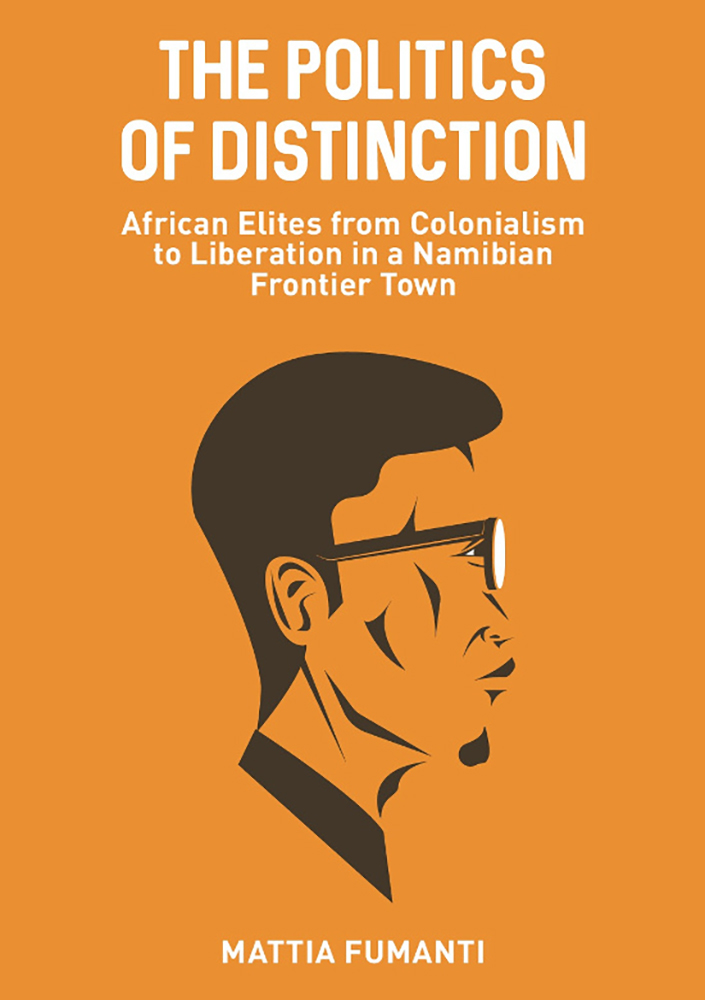The Politics of Distinction: African Elites from Colonialism to Liberation in a Namibian Frontier Town", by Mattia Fumanti

The Politics of Distinction: African Elites from Colonialism to Liberation in a Namibian Frontier Town", by Mattia Fumanti. UNAM Press. Windhoek, Namibia 2016. ISBN 9789991642291
The author of "The Politics of Distinction: African Elites from Colonialism to Liberation in a Namibian Frontier Town", Mattia Fumanti, is lecturer in Social Anthropology at the University of St Andrews in the United Kingdom. He has conducted anthropological research in Namibia, Ghana and the UK.
The role of education in public life
In Chapter One I trace the socio-economic history of Rundu from its colonial foundation in 1936 to the present. I show that throughout its history despite its considerable distance from the centre of the state, the town has been an important multi-functional centre. Straddling the limits of locality, between the centre and the periphery of the state, and the urban and the rural areas, Rundu has been a labour recruitment centre, an administrative centre, an education centre, the capital of a Bantustan, a military base and a retail centre. Over time, the town has seen a process of social differentiation, and in documenting that, I here analyse the emergence in the seventies of an elite of educationalists. This liberation elite has been instrumental in promoting nation-building at local level and in the making of the public space. Although comprising prominent figures within the community, their contribution to Rundu's public space was contested a decade ago by the presence of an established Afrikaner and Portuguese business elite, which dominated the towns economy in the early post-apartheid years as it did in the colonial past. The analysis of this process discloses the predicaments of the liberation elite. I show how in the effort to oppose the discourses of the business elite, the liberation elite emphasized the role of education as the key to true liberation. This leads me, in the second chapter, to examine further the central role of education for the process of stratification and elite formation in contemporary Rundu. Here I start to address the politics of distinction in Rundu from the perspective of the liberation elite. Members of Rundus elite took pride in their history of distinction. They weaved a subjective narrative, representing themselves as an educated intelligentsia who were once the vanguard of the country's liberation struggle. From apartheid to post-apartheid times, their history reflects their recognized, though not uncontested, accomplishment in education, church leadership, political activism and sport. Because such elite self-representation was an assertion of moral and political commitments shared with all 'the people', it was also problematic, open to challenge and had to be cultivated deliberately in a time of radical change. The chapter illuminates the elite history of distinction and self-representation through the biographies of two notable members of the liberation elite. First, I bring forth the biography of a distinguished woman, Ms Caley. A prominent educationalist at local and national level, Ms Caley's biography embodies this distinctiveness of the Rundu elite, their emphasis on education, but also the struggles and heroic trajectories during apartheid. Her biography also brings to the fore the prominent role of women in contemporary and traditional power structures in Kavango through the local idiom of usimbi, leadership. The second biography is of E.S., a popular hero and exemplary figure of distinction, from his early career in education and sport to his death. A full eye-witness account of his funeral highlights the public and inter-generational dialogue around his life. E.S.'s biography is understood as moved by the elite's moral passions, the sentimento in Paretian terms, and to express the elite's political consciousness. The chapter locates the elite subjective narrative within the historical and structural context of Rundu. [...]
This is an excerpt from The Politics of Distinction: African Elites from Colonialism to Liberation in a Namibian Frontier Town", by Mattia Fumanti.
Title: The Politics of Distinction
Subtitle: African Elites from Colonialism to Liberation in a Namibian Frontier Town
Author: Mattia Fumanti
Genre: Current Affairs
Publisher: UNAM Press
Windhoek, Namibia 2016
ISBN 9789991642291
Softcover, 17 x 24 cm, 311 pages, some b/w photos
Fumanti, Mattia im Namibiana-Buchangebot
The Politics of Distinction: African Elites from Colonialism to Liberation in a Namibian Frontier Town
Insightful ethnography: The Politics of distinction, African elites from colonialism to liberation in Rundu, a Namibian frontier town.

